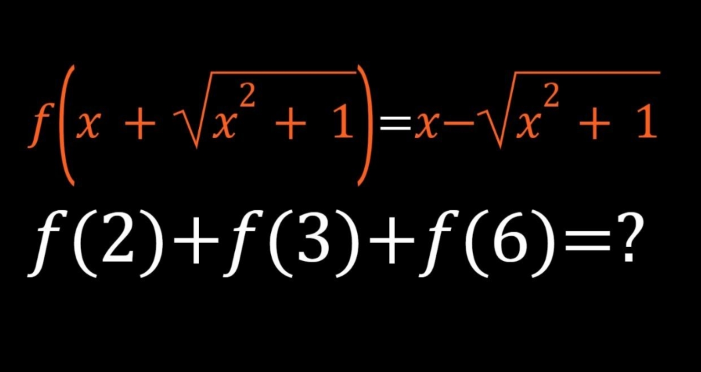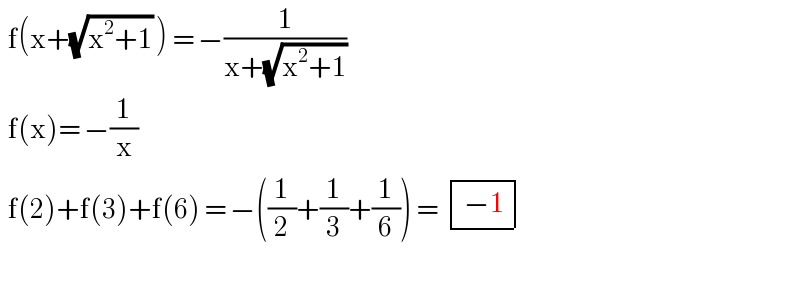Question Number 196619 by universe last updated on 28/Aug/23

Answered by cortano12 last updated on 28/Aug/23

$$\:\:\mathrm{f}\left(\mathrm{x}+\sqrt{\mathrm{x}^{\mathrm{2}} +\mathrm{1}}\:\right)\:=\:−\frac{\mathrm{1}}{\mathrm{x}+\sqrt{\mathrm{x}^{\mathrm{2}} +\mathrm{1}}} \\ $$$$\:\:\mathrm{f}\left(\mathrm{x}\right)=\:−\frac{\mathrm{1}}{\mathrm{x}} \\ $$$$\:\:\mathrm{f}\left(\mathrm{2}\right)+\mathrm{f}\left(\mathrm{3}\right)+\mathrm{f}\left(\mathrm{6}\right)\:=\:−\left(\frac{\mathrm{1}}{\mathrm{2}}+\frac{\mathrm{1}}{\mathrm{3}}+\frac{\mathrm{1}}{\mathrm{6}}\right)\:=\:\begin{array}{|c|}{−\mathrm{1}}\\\hline\end{array} \\ $$$$ \\ $$
